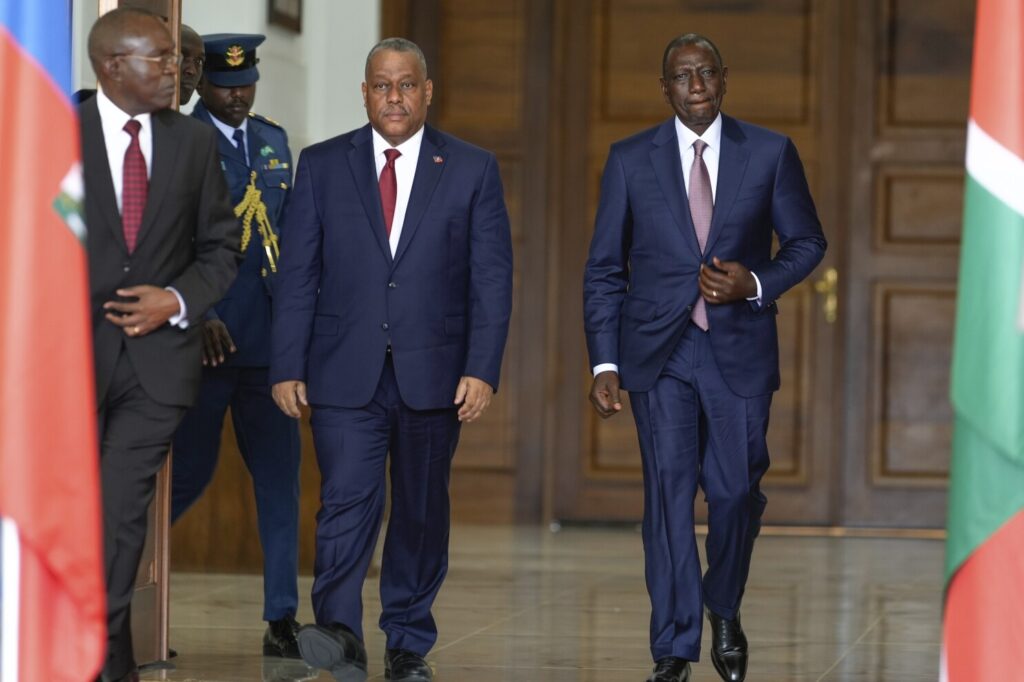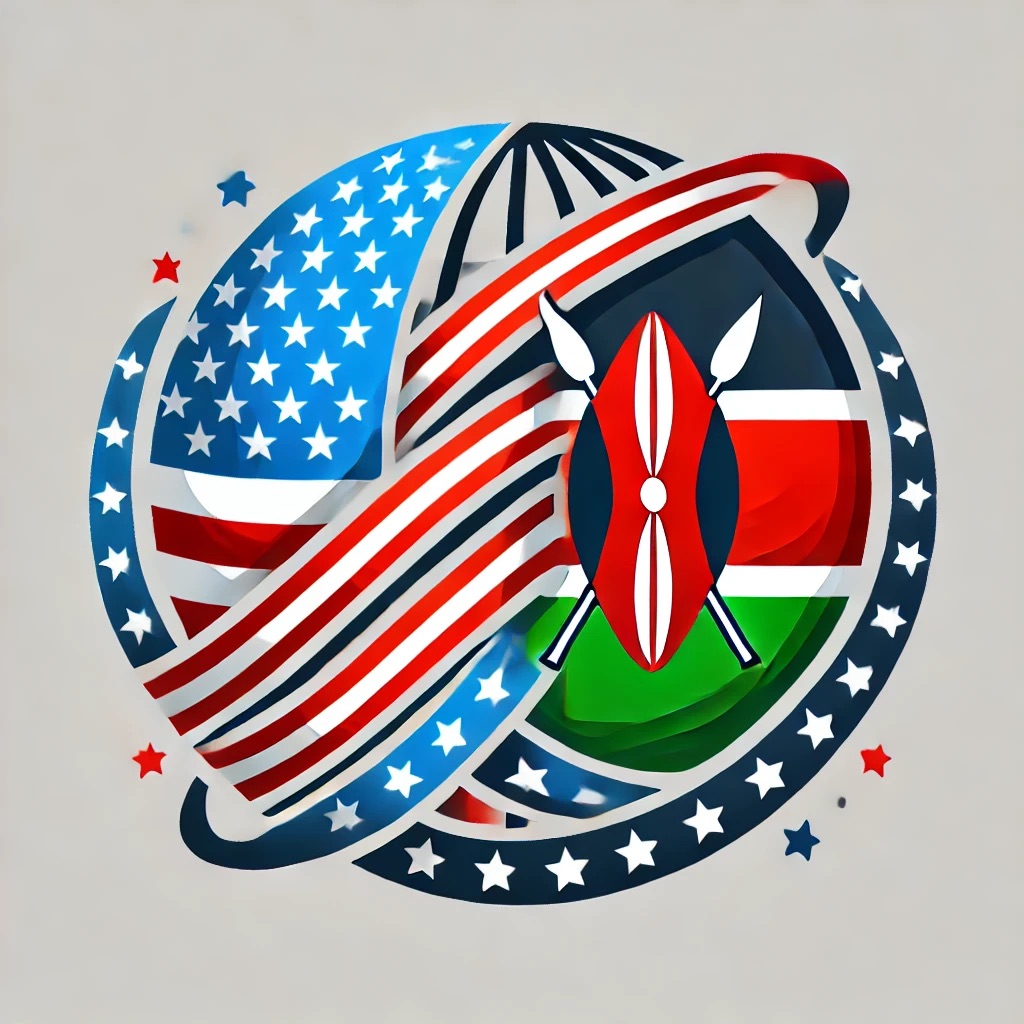
Kenya’s decision to deploy police officers to Haiti has sparked a complex and nuanced debate within the international community and the Kenyan American diaspora. The move, led by President William Ruto, is aimed at stabilizing Haiti amid escalating gang violence and political turmoil. While the mission underscores Kenya’s growing role in global peacekeeping, it also raises questions about neo-colonialism and the broader geopolitical dynamics at play. This article explores Kenya’s motivations, its challenges, and how the mission reflects—and potentially reinforces—colonial power structures, impacting Kenyan-American and Haitian-American relations.
Kenya’s involvement in Haiti is not purely altruistic. The country is looking to expand its global influence, positioning itself as a capable and reliable partner in international security. This move could bolster Kenya’s standing in international forums, particularly as it advocates for a more inclusive and representative United Nations Security Council. Yet, this intervention comes with U.S. backing, including a $300 million financial commitment from Washington, raising concerns about the underlying motives. The financial and logistical support provided by the U.S. has led to critiques that Kenya’s role in Haiti may not be entirely independent but rather part of a larger strategy to serve U.S. geopolitical interests.
For the Kenyan American diaspora, this partnership highlights the delicate balance between national pride and global ambition. On one hand, Kenya’s leadership on the international stage offers a sense of prestige; on the other, there’s an unease about the potential manipulation of African nations to fulfill Western security goals. This duality underscores the complexities of modern-day foreign relations for countries like Kenya that navigate both domestic aspirations and international obligations.
Critics argue that Kenya’s mission in Haiti may inadvertently reinforce neocolonial dynamics. By deploying a predominantly African peacekeeping force in a Caribbean nation, some view the intervention as a strategic move pitting two Black nations against each other, potentially advancing U.S. hegemonic objectives. The United States has long been criticized for its influence in Haitian politics and its failure to adequately support sustainable development, opting instead for short-term security solutions that often exacerbate existing inequalities.
This critique is not lost on the Kenyan American community, which has historically grappled with the legacies of colonialism and neocolonialism in both Africa and the Caribbean. The mission’s success or failure could influence how Kenyan Americans perceive Kenya’s role as a global actor—either as a proud leader in international peacekeeping or as a nation susceptible to manipulation by more powerful Western interests. These sentiments are shared by Haitian Americans, many of whom view the involvement of foreign peacekeepers as a continuation of Haiti’s long history of foreign interference and domination.
The U.S. backing of Kenya’s mission in Haiti has not gone unnoticed. For many, the presence of U.S. support points to a broader strategy to maintain control over Haiti’s political and economic landscape. Historically, the U.S. has had a contentious relationship with Haiti, marked by periods of military occupation and economic pressure. Critics worry that the Kenyan-led peacekeeping mission, while well-intentioned, could serve as another tool for the U.S. to enforce its geopolitical agenda, using Kenyan forces to achieve stability without addressing the underlying systemic issues in Haiti.
This sentiment is particularly resonant for Haitian Americans, who may see the involvement of Kenyan forces as an indirect extension of Western influence, further undermining Haiti’s sovereignty. The narrative that two predominantly Black nations are being maneuvered into conflict management roles by a Western power has stirred discussions about the ethics of international interventions and the responsibilities of African nations in global peacekeeping.
Kenya’s peacekeeping role in Haiti has the potential to either strengthen or strain the relationship between Kenyan Americans and Haitian Americans. While some see this as an opportunity for two influential Black diasporas to collaborate and share experiences, others are wary of the neo-colonial undertones that come with a Western-backed intervention. The mission raises questions about solidarity among Black communities worldwide and whether the current global power structures truly allow for independent decision-making by nations like Kenya.
For the Kenyan American diaspora, the situation prompts a reassessment of Kenya’s global role. There is pride in seeing Kenya take on an international leadership position. Yet, there’s also concern that the mission could be perceived as a betrayal of solidarity with other Black communities. On the other hand, Haitian Americans are cautious, viewing Kenya’s involvement as potentially beneficial but skeptical of the real intentions behind the mission. This creates a complex landscape where cooperation and suspicion coexist, reflecting the historical baggage of any intervention involving former colonial powers and their allies.
Kenya’s peacekeeping mission in Haiti is a bold and unprecedented move reflecting ambition and risk. It challenges traditional notions of African nations’ roles in global affairs, presenting Kenya as a capable leader willing to engage in international security beyond its borders. However, the mission also raises uncomfortable questions about neo-colonialism, U.S. influence, and the ethics of using Black nations to police other Black nations.
For Kenyan Americans, the mission’s outcome will likely shape their views on Kenya’s place in the world and its ability to act independently in a global system dominated by Western powers. As the situation in Haiti unfolds, it will be crucial for Kenya to navigate these challenges carefully, ensuring that its peacekeeping efforts do not become a tool for external interests but rather a genuine step toward a more stable and equitable global order. Whether this mission becomes a symbol of African leadership or another chapter in the history of neo-colonial manipulation remains to be seen, and the outcome will have lasting implications for the Kenyan American and Haitian American communities alike.
